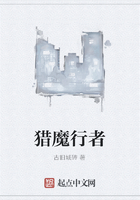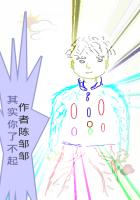The two men who had walked up together arm in arm from Downing Street, stood for several moments in Pall Mall before separating. The pressman who was passing yearned for the sunlight in his camera. One of the greatest financiers of the city in close confabulation with Mr. Gordon Jones, the Chancellor of the Exchequer, was an interesting, almost an historical sight.
"It is a source of the greatest satisfaction to me, Sir Alfred," the Minister was saying earnestly, "to find such royal and whole-hearted support in the city. I am afraid," he went on, with a little twinkle in his eyes, "that there are times when I have scarcely been popular in financial circles.""We have hated you like poison," the other assured him, with emphasis.
"The capitalists must always hate the man who tries to make wealth pay its just share in the support of the Empire," Mr. Gordon Jones remarked. "The more one has, the less one likes to part with it. However, those days have passed. You bankers have made my task easier at every turn. You have met me in every possible way. To you personally, Sir Alfred, I feel that some day Ishall have to express my thanks--my thanks and the thanks of the nation--in a more tangible form.""You are very kind," the banker acknowledged. "Times like this change everything. We remember only that we are Englishmen."The Minister hailed a passing taxi and disappeared. The banker strolled slowly along Pall Mall and passed through the portals of an august-looking club. The hall-porter relieved him of his coat and hat with great deference.
As he was crossing the hall, after having exchanged greetings with several friends, he came face to face with Surgeon-Major Thomson. The latter paused.
"I am afraid you don't remember me, Sir Alfred," he said, "but I have been hoping for an opportunity of thanking you personally for the six ambulance cars you have endowed. I am Surgeon-Major Thomson, chief inspector of Field Hospitals."Sir Alfred held out his hand affably.
"I remember you perfectly, Major," he declared. "I am very glad that my gift is acceptable. Anything one can do to lessen the suffering of those who are fighting our battle, is almost a charge upon our means.""It is very fortunate for us that you feel like that," the other replied.
"Thank you once more, sir."
The two men separated. Sir Alfred turned to the hall-porter.
"I am expecting my nephew in to dine," he said,--"Captain Granet. Bring him into the smoking-room, will you, directly he arrives.""Certainly, sir!"
Sir Alfred passed on across the marble hall. Thomson, whose hand had been upon his hat, replaced it upon the peg. He looked after the great banker and stood for a moment deep in thought. Then he addressed the hall-porter.
"By-the-bye, Charles," he inquired, "if you ask a non-member to dinner, you have to dine in the strangers' room, I suppose?""Certainly, sir," the man replied. "It is just at the back of the general dining-room.""I suppose an ordinary member couldn't dine in there alone?""It is not customary, sir."
Surgeon-Major Thomson made his way to the telephone booth. When he emerged, he interviewed the head-waiter.
"Keep a small table for me in the strangers' room," he ordered. "I shall require dinner for two.""At what time, sir?"
Major Thomson seemed for a moment deaf. He was looking through the open door of the smoking-room to where Sir Alfred was deep in the pages of a review.
"Are there many people dining there to-night?" he asked.
"Sir Alfred has a guest at eight o'clock, sir," the man replied. "There are several others, I think, but they have not ordered tables specially.""At a quarter past eight, if you please. I shall be in the billiard-room, Charles," he added, turning to the hall-porter.
Sir Alfred wearied soon of the pages of his review and leaned back in his chair, his hands folded in front of him, gazing through the window at the opposite side of the way. A good many people, passing backwards and forwards, glanced at him curiously. For thirty years his had been something like a household name in the city. He had been responsible, he and the great firm of which he was the head, for international finance conducted on the soundest principles, finance which scorned speculation, finance which rolled before it the great snowball of automatically accumulated wealth. His father had been given the baronetcy which he now enjoyed, and which, as he knew very well, might at any moment be transferred into a peerage. He was a short, rather thick-set man, with firm jaws and keen blue eyes, carefully dressed in somewhat old-fashioned style, with horn-rimmed eyeglass hung about his neck with a black ribbon. His hair was a little close-cropped and stubbly. No one could have called him handsome, no one could have found him undistinguished.
Even without the knowledge of his millions, people who glanced at him recognised the atmosphere of power.
"Wonder what old Anselman's thinking about," one man asked another in an opposite corner.
"Money bags," was the prompt reply. "The man thinks money, he dreams money, he lives money. He lives like a prince but he has no pleasures. >From ten in the morning till two, he sites in his office in Lombard Street, and the pulse of the city beats differently in his absence.""I wonder!" the other murmured.
Other people had wondered, too. Still the keen blue eyes looked across through the misty atmosphere at the grey building opposite. Men and women passed before him in a constant, unseen procession. No one came and spoke to him, no one interfered with his meditations. The two men who had been discussing him passed out of the room presently one of them glanced backwards in his direction.
"After all, I suppose," he observed, as he passed down the hall, "there is something great about wealth or else one wouldn't believe that old Anselman there was thinking of his money-bags. Why, here's Granet. Good fellow! I'd no idea you'd joined this august company of old fogies."Granet smiled as he shook hands.















